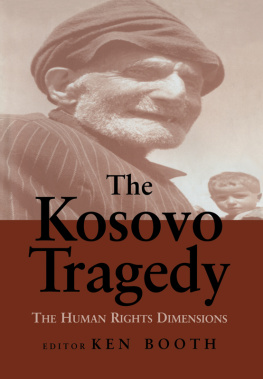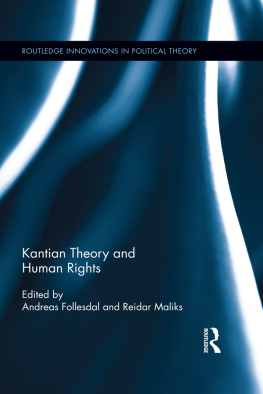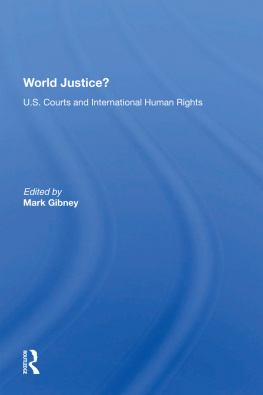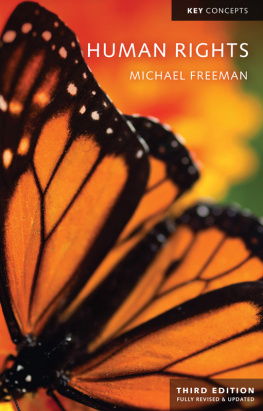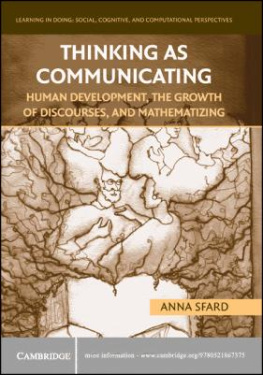
The author and publisher have provided this e-book to you for your personal use only. You may not make this e-book publicly available in any way. Copyright infringement is against the law. If you believe the copy of this e-book you are reading infringes on the authors copyright, please notify the publisher at: us.macmillanusa.com/piracy.
For my parents, Anna and Leon, who raised me to be critical of the centers of power and respect all human beings,
For my clients, who allow me the privilege of taking part in a just struggle,
and for my opponents, thanks to whom my work has become my mission.
For Romi and Roee, who are discovering that the world is full of walls and learning that the meaning of life is dismantling them,
And for Nirith, my partner in everything, who means more to me than language can say.
The snow has stopped and the streets are basking in the pleasant New York winter sun, which is calling me to leave the apartment we have rented in a beautiful Brooklyn neighborhood and come outside. But at this moment my heart is in the East. As I write, thousands of police are evacuating the settler outpost of Amona, east of Ramallah in the West Bank. Israeli security forces and Jewish settlers are in combat on land belonging to my clients, Palestinians from nearby villages. The settlers invaded the land about twenty years ago and have forcibly controlled and lived on it ever since. The government and the military, officially charged with protecting Palestinians from the theft of their land, not only failed to lift a finger but did whatever they could to help the offenders.
In long and complicated legal proceedings that began nine years earlier, in 2008, I represented the victims of this landgrab on behalf of Yesh Din, an Israeli human rights organization. In late 2014 we won our case and the High Court of Justice ordered the evacuation of the intruders. The government tried everything in its power to get around the judgment, but thanks to Yesh Dins determination, its efforts failed. And so the day of the return of my clients land had arrived.
It should be a day of joy and hope, but with the gratification comes deep concern. I know that after the evacuation there will be a long Sisyphean battle to make the victory a reality, to secure for the landowners free access to their land. The fear that the army will find a way to deny or restrict their access is based on the long experience of the lawyers and NGOs who defend the rights of Palestinians. There is also the fear of hate crimes by settler extremists, a grave threat that has grown increasingly widespread and to which the authorities have responded with shameful indifference. And more: the government is likely to approve the construction of a great many housing units, perhaps a whole new community, for the evacuees. A new settlement means another thrust of the colonial knife into the heart of the West Bank. Israels taxpayers will pick up the tab for this new settlementthat is, my family and I will put up the money for the gifts the government will shower on the settlers, all to appease them for the rare occurrence of the law having actually been enforced.
This is why my satisfaction that the invasion of my clients land is finally ending is tempered by unease about the long-term outcome of the achievement.
* * *
T HIS BOOK WAS conceived on the Tel AvivJerusalem highway. The questions it covers and the insights it explores absorbed me during the hundreds of hours I clocked in commuting to my home or office in Tel Aviv after hearings in Jerusalems High Court of Justice. On the way there I would be immersed in the details of the case, the arguments I was planning to make. But coming back, traveling the twists and turns of the Jerusalem hills, unwinding after the tension before and during the hearing, I would find myself engaged in professional soul-searching.
As a human rights lawyer representing people living under occupation whose civil rights have been suspended for fifty years, does my work make any difference? Does it in some cases even cause harm? Is it possible, in this sort of context, to bring real and significant social change through legal advocacy? Or does the fundamental nature of the judiciary prevent it from serving as an engine for change in certain situations? Can such change only happen outside the courtroom? And worse: Am I a pawn in the greatest swindle of the Israeli occupation, just passing its half-century mark, by helping to prop up the illusion of a regime that has mechanisms and laws in place to prevent arbitrary acts, contain state violence, and thwart injustice?
Usually, somewhere near Ben Gurion International Airport, after about half an hour of back-and-forth between contradictory but equally convincing arguments, I would give up on my internal debate. I would tell myself that I have no definitive answers and beating myself up over it will accomplish nothing. One day, I promised myself, Ill take some time off and devote myself to exploring these issues.
The Wall and the Gate is the result of that exploration, made possible by a grant from the Open Society Foundations. Dozens of Israeli lawyers, veteran and young, as well as peace and human rights activists helped by sharing their memories and insights with me. I interviewed many of them and corresponded with others. I relied heavily on books and reporting from the relevant period and of course on decisions and judgments given by the High Court of Justice. Using all of these, I have tried to tell the storyor at least partof the legal struggle against the occupation.
The chapters that follow recount eight major legal battles against practices that entail widespread violations of Palestinian human rights in the Occupied Territories. Those practices have shaped the lived reality of millions of victims: deporting Palestinian militants, creating Jewish settlements, using torture in interrogations, building the separation barrier, constructing unauthorized outposts, imposing administrative detention, demolishing the homes of families of suspected terrorists, and assassinations (also known as targeted killings). Each of these struggles involved dozens and sometimes hundreds of court proceedings. I hoped that the cumulative experience of these campaigns would yield some practical insights into the possibilities and limitations of using litigation as a tool for protecting human rights, primarily in the context of military occupation but also in other settings.
A few cautionary remarks: First, many occupation-related challenges that were brought to the High Court were left out of this book, including the fight against land seizures and confiscation, revocation of Palestinian residency, prevention of family unification, lack of accountability for perpetrators of attacks on Palestinians, restrictions on Palestinian movement within the territories, use of prohibited methods of warfare, and violation of due process rights in the military court system.
Second, I am not an impartial observer and my book makes no claim to detachment. These struggles are described from the point of view of the human rights community and particularly of human rights lawyers, some of whom are my friends. I have been personally involved in some of the battles included here, and I have a view on those in which I did not take parta view not spared the reader.
Finally, since this book focuses on the Israeli legal struggle, it naturally refers to the work of Israeli lawyers, both Jewish and Palestinian. Regretfully, the invaluable work of West Bank and Gazan Palestinian lawyers and human rights organizations is largely absent, although they have applied their devotion and dedication to fighting the occupation with legal tools for decades. Their story warrants its own book.
Next page

